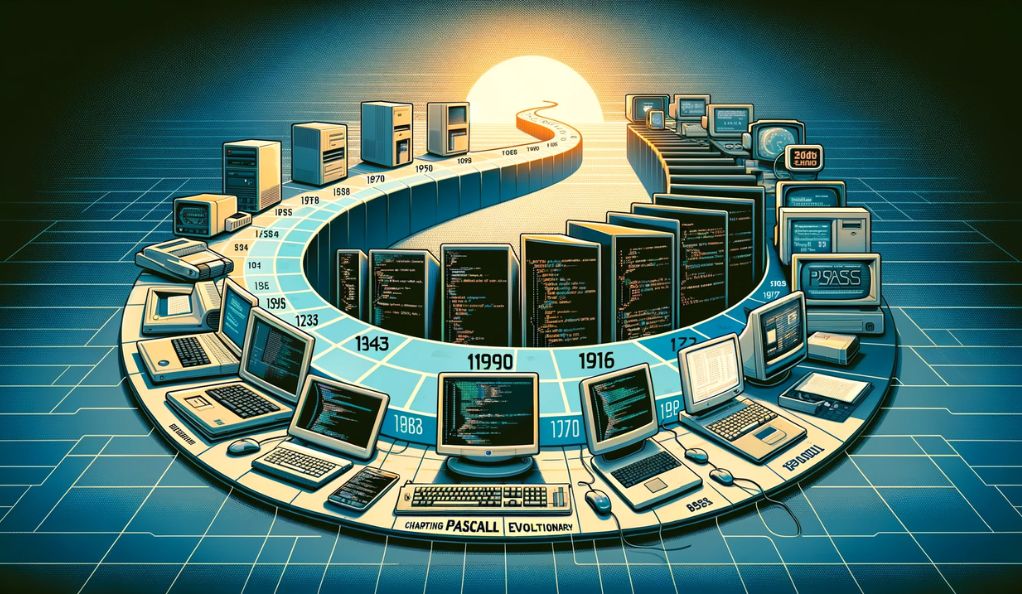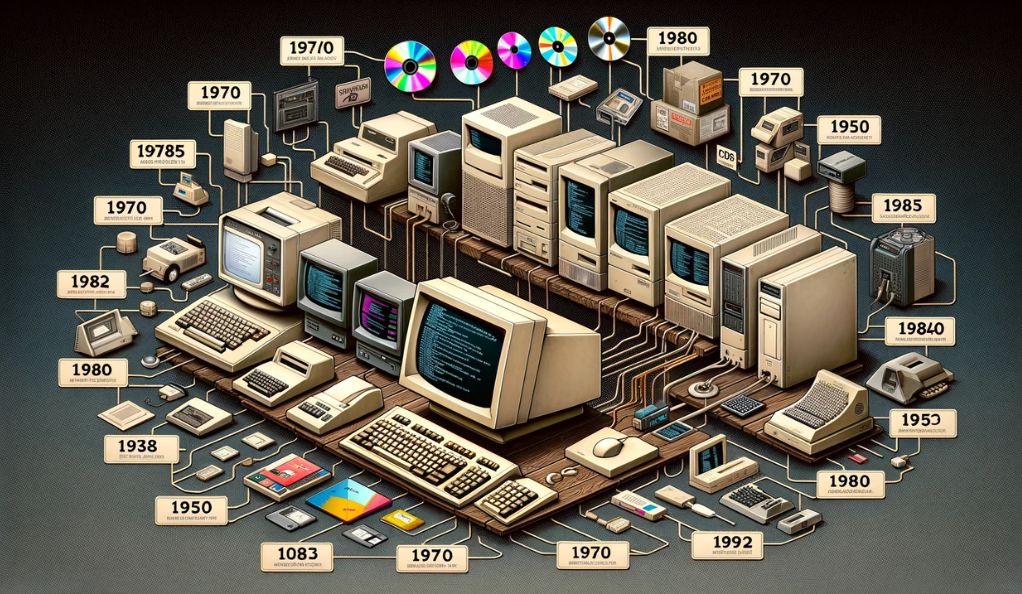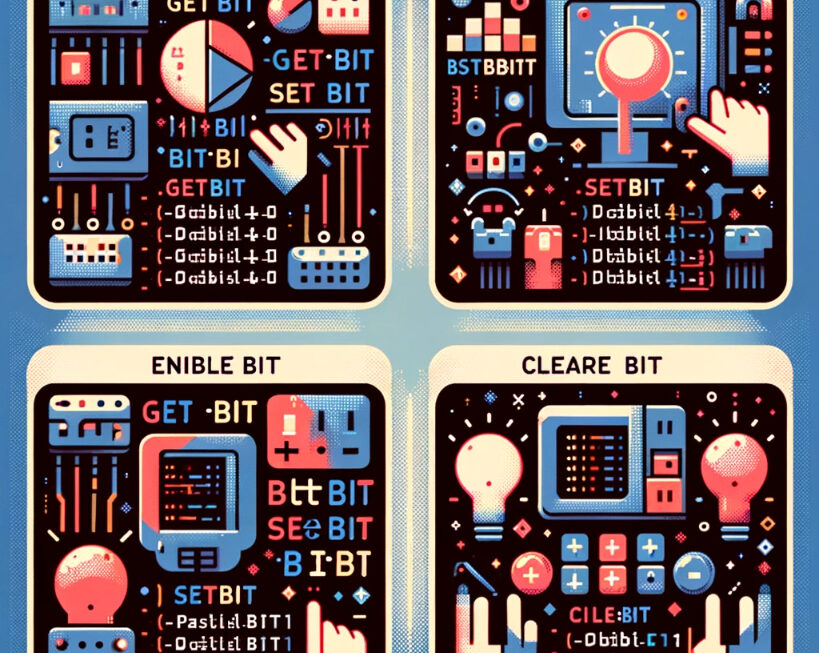Prelude to Innovation: The Genesis of Pascal
The Dawn of a New Era in Programming
In the late 1960s, a visionary computer scientist, Professor Niklaus Wirth, embarked on a journey that would forever change the landscape of programming. Wirth, who had already made significant contributions to the development of ALGOL 60, a precursor to many modern programming languages, saw the need for a new language. This language would not only address the complexities of its predecessors but also introduce a paradigm shift in programming practices.
The Philosophical Roots of Pascal
Named after the 17th-century French mathematician and philosopher, Blaise Pascal, the Pascal programming language was conceived with a philosophy deeply rooted in structured programming and clarity. Wirth’s choice to name the language after Blaise Pascal was symbolic, reflecting a commitment to precision, logic, and the pioneering spirit in scientific inquiry.
The Early Development: Setting the Foundation
Wirth’s journey in creating Pascal began with his experience in improving ALGOL 60. ALGOL, short for Algorithmic Language, was the standard-bearer for structured programming but had limitations that Wirth was keen to overcome. His initial attempt to revise ALGOL, known as ALGOL W, laid the groundwork for what would eventually become Pascal. When ALGOL W was not accepted in the ALGOL X process, Wirth decided to further develop his ideas, culminating in the release of Pascal in 1970.
Pascal: A Language Designed for Clarity and Efficiency

The core of Pascal’s design was to promote good programming practices. This was achieved through a clear structure and strong emphasis on data structuring and type safety. Unlike its predecessors, Pascal was designed to be small and efficient, making it more accessible and easier to learn. This approach not only made Pascal an excellent language for academic instruction but also laid the foundation for its widespread adoption in various computing environments.
Pascal’s Innovative Features
Pascal introduced several innovative features that were revolutionary at the time. Some of these included:
- Strong Typing: This ensured that data types were explicitly declared and used correctly, reducing errors and improving code reliability.
- Structured Programming: Pascal emphasized clear, structured approaches to programming, making code easier to understand, debug, and maintain.
- Data Structuring: The language allowed for the creation of complex data types and structures like arrays, records, and files, facilitating more sophisticated data handling.
The Launch and Early Reception
Upon its release, Pascal quickly garnered attention for its innovative approach to programming. It struck the right balance between simplicity and capability, making it particularly appealing to the academic community. Universities around the world began adopting Pascal as the language of choice for teaching programming principles, marking the beginning of its widespread influence.
Setting the Stage for Modern Programming
Pascal not only offered a new way of writing code but also set the stage for the evolution of modern programming languages. Its influence can be seen in several key areas:
- Teaching and Education:
- Pascal’s straightforward syntax and structured approach made it an ideal tool for teaching programming concepts.
- Its adoption in academic settings laid the groundwork for future generations of programmers, instilling fundamental programming principles.
- Influencing Future Languages:
- Pascal’s design principles influenced the development of many later languages. Strong typing and structured programming became benchmarks for new languages.
- Languages like Modula-2, Oberon, and even Java owe some of their features to the foundations laid by Pascal.
The Balance of Simplicity and Power
One of Pascal’s most significant achievements was striking a balance between simplicity and power. It provided enough features to write complex programs while remaining accessible to beginners. This balance is a testament to Wirth’s vision of a language that could cater to both educational and professional needs.
A Community Forms Around Pascal
As Pascal grew in popularity, a community of programmers formed around it, sharing knowledge, creating resources, and expanding the language’s ecosystem. This community played a crucial role in Pascal’s evolution, contributing to its longevity and adaptability.
Charting Pascal’s Evolutionary Path

As Pascal matured, its evolutionary path reflected the changing landscape of the programming world:
- Technological Adaptations:
- Pascal evolved to meet the growing demands of new computing environments, from mainframes to personal computers.
- Its adaptability to different platforms showcased its versatility and robustness.
- The Rise of Turbo Pascal:
- A significant milestone in Pascal’s history was the introduction of Turbo Pascal by Borland in the 1980s.
- Turbo Pascal brought incredible compilation speed, integrated development environment (IDE), and affordability, which were game-changers for both professional and hobbyist programmers.
- Object-Oriented Extensions:
- The development of Object Pascal in the mid-1980s marked Pascal’s foray into object-oriented programming, keeping pace with industry trends.
- This evolution paved the way for the creation of Delphi, which combined Pascal’s simplicity with powerful object-oriented capabilities.
Impact on Software Development
Pascal’s influence on software development has been profound:
- Encouraging Good Practices:
- By emphasizing structured programming, Pascal encouraged practices that improved code readability and maintainability.
- These principles are now ingrained in modern software development methodologies.
- Bridging Education and Industry:
- Pascal served as a bridge between academic theory and industry practice, providing a solid foundation for students who would later join the professional world.
Pascal’s Enduring Influence in Modern Computing
As we look at the contemporary programming landscape, the echoes of Pascal’s principles are unmistakable:
- Influencing Modern Languages:
- Many contemporary programming languages have features that were pioneered by Pascal. Its influence is particularly noticeable in languages like C#, which bear the hallmark of Pascal’s structured approach and type safety.
- Educational Legacy:
- Pascal’s role in education has left a lasting legacy. Even though newer languages have taken over its role in many educational institutions, the clarity and structure that Pascal brought to programming education still resonate.
- Community and Open Source Contributions:
- The Pascal community, though not as prominent as it once was, continues to contribute to the language’s development, particularly in open source projects.
A Language Ahead of Its Time
In many ways, Pascal was ahead of its time. Its emphasis on structured programming, type safety, and readability were visionary in an era where these concepts were not widely practiced. Today, these are considered best practices in software development.
Pascal’s Legacy in Contemporary Programming Tools and Environments

The legacy of Pascal extends into the tools and environments that shape modern programming:
- Delphi and Modern Development:
- Delphi, as a direct descendant of Pascal, continues to be a powerful tool for software development, offering robust features for Windows, macOS, iOS, and Android development.
- The principles of Pascal are integral to Delphi, blending traditional Pascal virtues with contemporary programming needs.
- Innovations Inspired by Pascal:
- Pascal’s influence can be seen in various integrated development environments (IDEs) and compilers that prioritize user-friendly design and efficient code management, echoing Pascal’s original design ethos.
- Educational Tools and Resources:
- Educational resources developed for Pascal have been adapted for teaching modern programming languages, carrying forward its legacy of facilitating clear and structured thinking in programming.
The Future of Pascal and Its Descendants
As we look to the future, the spirit of Pascal lives on:
- Continued Use in Specialized Areas:
- Pascal is still used in some niche areas, especially in legacy systems and in educational contexts where its clarity is a valued teaching aid.
- Its descendants, particularly Delphi, continue to evolve, integrating modern programming features while maintaining the core principles of Pascal.
- Inspiring Future Generations:
- The legacy of Pascal, embodied in languages and tools like Delphi, continues to inspire and educate new generations of programmers.
Conclusion
As we commemorate Pascal’s 50th anniversary, we celebrate not just a programming language, but a pillar in the world of computing. Pascal, a brainchild of Niklaus Wirth, revolutionized programming with its principles of structure, efficiency, and clarity. Its influence extends beyond its syntax, shaping modern programming practices and inspiring generations of programmers. This golden anniversary is a tribute to Pascal’s enduring legacy in the ever-evolving narrative of technology, a testament to its foundational role in the history and future of programming.




